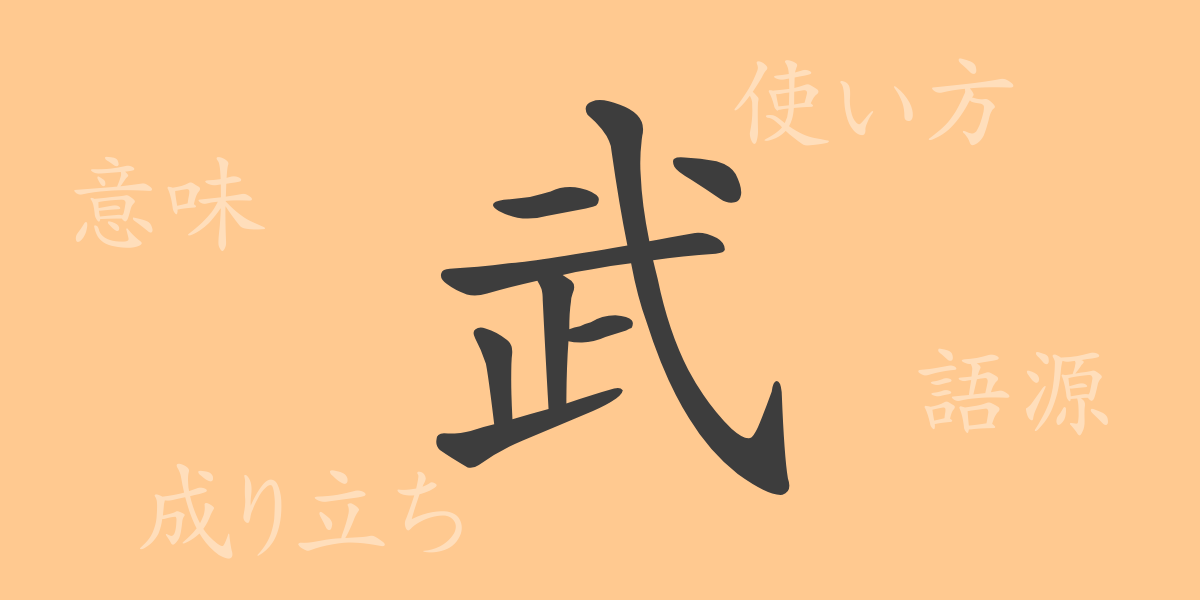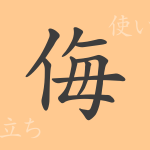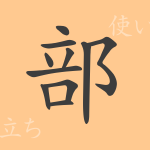Kanji (かんじ) deeply rooted in Japanese culture each carry unique histories and meanings. Among them, the kanji “武” (ぶ, bu) has significantly influenced Japanese spirituality and history. In this article, we will delve into the origins, meanings, uses, readings, and even idioms and proverbs featuring “武” (ぶ, bu), revealing the full scope of this powerful character.
The Origin of “武” (ぶ, bu)
The kanji “武” (ぶ, bu) originates from ancient China. Its structure combines “止” (し, shi), representing a hand holding a weapon, and “戈” (ほこ, hoko), a type of weapon. Symbolizing the strength and courage necessary for battle, it has long been used to represent the spirit of the samurai. Additionally, “武” (ぶ, bu) is composed of “止” (し, shi), meaning “to stop,” and “戈” (ほこ, hoko), meaning “to strike down external enemies.” This combination conveys a paradoxical yet profound meaning of bringing peace through battle.
Meaning and Usage of “武” (ぶ, bu)
The kanji “武” (ぶ, bu) is primarily used in words related to battle and strength, such as “武力” (ぶりょく, buryoku – military power), “武勇” (ぶゆう, buyū – bravery), and “武装” (ぶそう, busō – armament). It is also used to express mental strength and courage. In Bushidō (ぶしどう, the way of the warrior), “武” (ぶ, bu) carries moral and philosophical connotations beyond mere combat skills. In modern times, it is also used in the context of sports as “武道” (ぶどう, budō – martial arts), emphasizing the importance of training both body and mind.
Readings, Stroke Count, and Radical of “武” (ぶ, bu)
“武” (ぶ, bu) is a commonly seen character in everyday Japanese life.
- Readings: On’yomi (おんよみ, Chinese reading) – “ぶ” (bu); Kun’yomi (くんよみ, Japanese reading) – “たけし” (takeshi)
- Stroke count: 8 strokes in total
- Radical: 止部 (とめぶ, tomebu – the “stop” radical)
Idioms, Proverbs, and Expressions Using “武” (ぶ, bu)
There are numerous idioms, proverbs, and expressions that include “武” (ぶ, bu), each reflecting Japanese values and worldview. For example, “武者震い” (むしゃぶるい, mushaburui) describes the tension or excitement before a battle, and “武運長久” (ぶうんちょうきゅう, buunchōkyū) is a phrase wishing for luck and longevity in battle. Additionally, the proverb “武士は食わねど高楊枝” (ぶしはくわねどたかようじ, bushi wa kuwanedo takayōji) symbolizes the samurai spirit, meaning to maintain one’s dignity even in poverty.
Summary of “武” (ぶ, bu)
The kanji “武” (ぶ, bu) not only represents battle and strength but also symbolizes the spirit of Bushidō and the importance of mental training. Through its deep history and diverse usage, it continues to profoundly influence Japanese life and culture. This single character encapsulates Japan’s rich traditions and values.

























